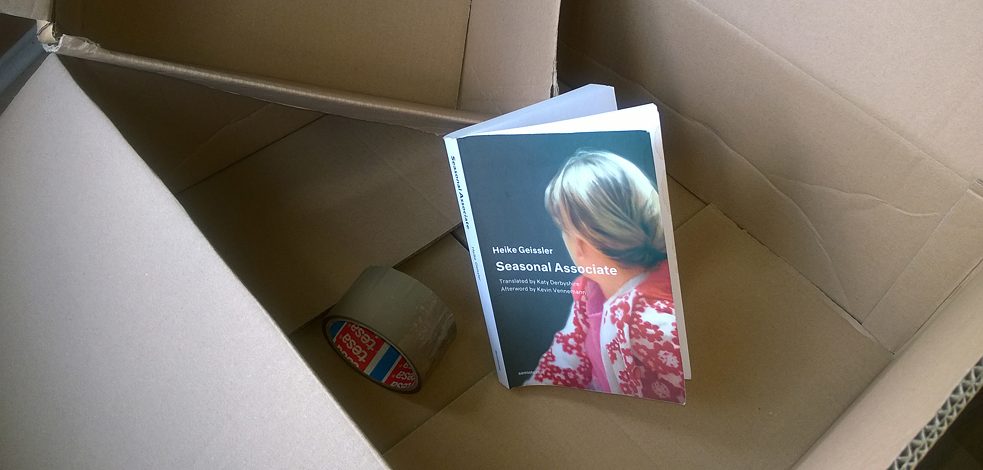September 2019
Seasonal Associate: questioning the world of work

There’s a strange discrepancy between the organisation of English and German bookshops. Where Anglophones divide books between fiction and non-fiction, German separates “Sachbücher” (roughly meaning books on a specialised subject) and “Belletristik” (literally: beautiful letters), which spans novels, memoir, nature writing, and anything else where the language is just as important as what is being told. For a long time, I conflated non-fiction with “Sachbücher” and I wasn’t a fan. I turned to books for stories, characters, ways with words, I told myself: never for facts. With the rise of the essay and creative non-fiction though, I’ve been converted. Two highlights of this newly discovered genre for me are Maggie Nelson’s The Argonauts and, more recently, Kate Brigg’s This Little Art. These books summersault between genres, between memoir, history, philosophy. They invite us in and ask us to see the world just a tiny bit differently, or – at other points – they sum up thoughts we’ve never been able to express. And all this with verve and wit and joy.
The newest addition to my non-fiction shelf is Heike Geissler’s Seasonal Associate, translated by Katy Derbyshire. Geissler, a writer and translator, took on a short-term contract at Amazon’s Leipzig warehouse one hard-up winter, and in Seasonal Associate she shares that experience with the reader, quite literally: “But first of all we’ll set out, because you have a job interview. You set out and I’ll accompany you and tell you what it’s all like and what’s happening to you. From now on, you are me.” This switch in perspective is what makes the book – it becomes playful and personal even when the “you” is exhausted at the end of a long day or frustrated by the pettiness of company regulations.
Having grown up into the gig economy, into a society of short-term, zero-hour contracts without a welfare state which functions for such precarious workers, I read Seasonal Associate with a growing sense of elation born from being seen. Geissler captures countless conversations I’ve had with friends and peers about our patchwork careers, the sense that “something about this job and many other jobs is essentially rotten”, and notably the way that “it sometimes feels like a failure when you can’t live off your actual job”. (Although I’ll admit that, as a fellow freelancer, when Geissler admits to being bad at sending invoices, I wanted to sit her down for a Talk.)
Sophie Collins suggested recently that we should judge a translation not for its fidelity with the source text but for its intimacy with it, a shifted framework which recognises the complexity of translation decisions. The intimacy of Derbyshire’s English translation with the original here is remarkable – she fully inhabits Geissler’s voice, which enables her to add the odd explanatory note for non-German readers without ever jarring the narrative: “Let me tell you something you might not know. In German, tote sounds like the word for dead or death.”
Millennials are the first generation born since the war to be poorer than their parents – and yet our lack of stability is often talked about as if it is somehow our fault. (One word: avocados.) Geissler herself isn’t a millennial, but Seasonal Associate is refreshing for its clear-sightedness, opening up spaces for conversations which we very much need to continue.